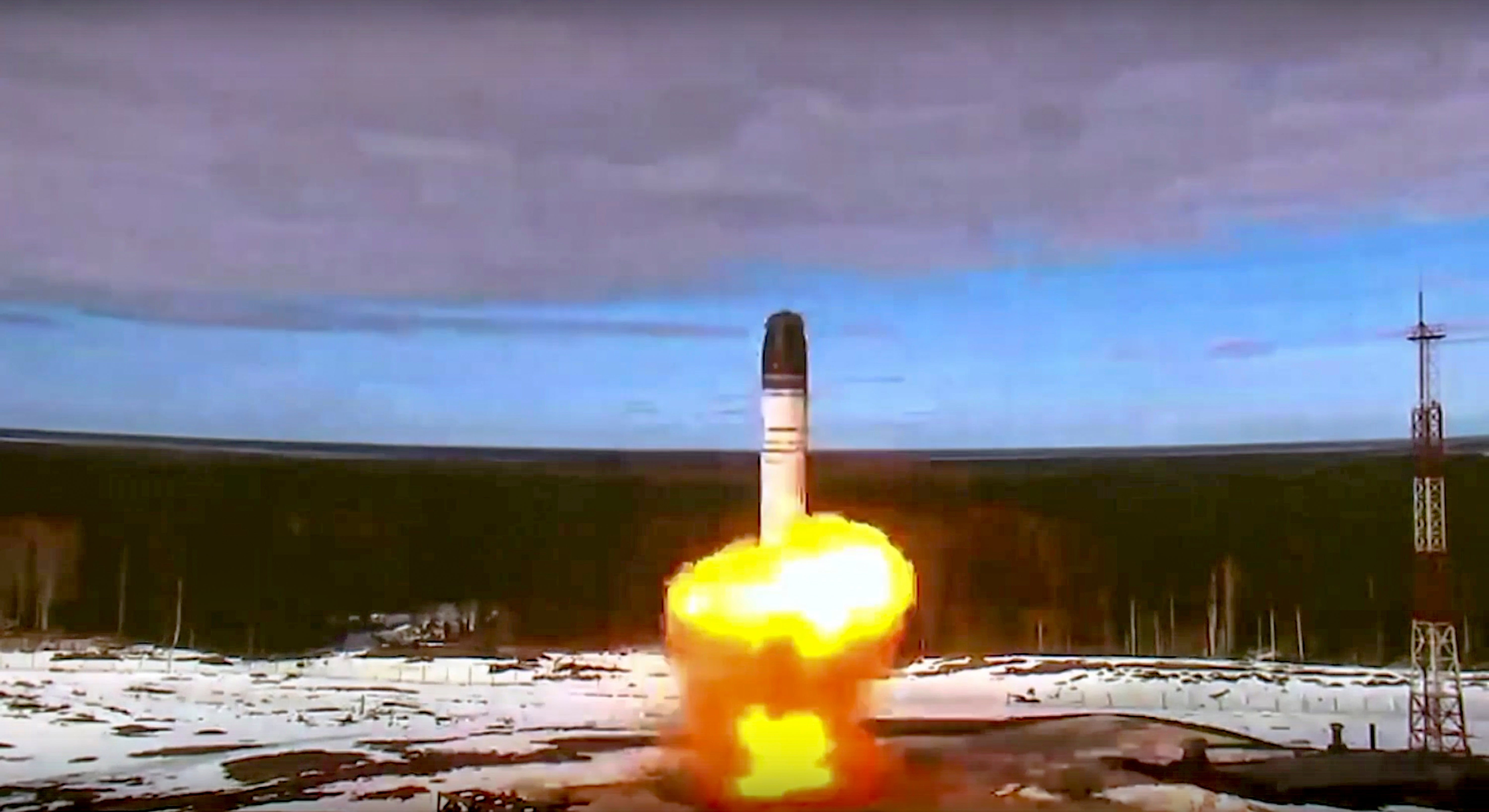Putin ‘tried and failed’ to launch intercontinental ballistic missile during Biden visit to Ukraine
Putin did not mention the missile launch in his state of the nation address as he did in 2022
Your support helps us to tell the story
From reproductive rights to climate change to Big Tech, The Independent is on the ground when the story is developing. Whether it's investigating the financials of Elon Musk's pro-Trump PAC or producing our latest documentary, 'The A Word', which shines a light on the American women fighting for reproductive rights, we know how important it is to parse out the facts from the messaging.
At such a critical moment in US history, we need reporters on the ground. Your donation allows us to keep sending journalists to speak to both sides of the story.
The Independent is trusted by Americans across the entire political spectrum. And unlike many other quality news outlets, we choose not to lock Americans out of our reporting and analysis with paywalls. We believe quality journalism should be available to everyone, paid for by those who can afford it.
Your support makes all the difference.Russia conducted the test of an intercontinental ballistic missile on Monday when US president Joe Biden arrived in Ukraine, according to a report. However, the launch failed.
The missile test involved a heavy Sarmat missile – known as Satan II in the West – capable of delivering multiple nuclear warheads across the continent, two US officials familiar with the matter told CNN.
But the missile, which has been successfully tested before, appeared to have failed this time, officials said, as Russian president Vladimir Putin would have mentioned it in his State of the Nation address on Tuesday had the launch been a success.
The Kremlin notified the US in advance of the launch through deconfliction lines, an official said, according to the report.
It was not immediately clear when the warning was given by Russian officials. However, national security adviser Jake Sullivan said on Monday that the Russian side was notified about Mr Biden’s visit to Kyiv just hours before on Sunday night.
The missile tests did not pose a risk or threat to the US and Washington did not view it as an anomaly or an escalation, another official said.
The timing of the missile test was not immediately clear, but officials noted that it occurred before Mr Biden’s visit to Kyiv on Monday.

Mr Putin had announced successful ICBM launches in the past. In April last year he said that the Sarmat was a “unique weapon” that would strengthen the combat potential of Russia’s armed forces in a televised address after its launch from Plesetsk in the north-west.
But on Tuesday, speaking during his State of the Nation address, the Kremlin leader announced the suspension of Russia’s last major nuclear arms control treaty with the US in a warning.
He did not mention the missile test as he announced the suspension of Russia’s participation in the New START (Strategic Arms Reduction Treaty).
Unveiled in 2016, the missile has a range exceeding 11,000km (6,835 miles) and could carry a warhead weighing up to 100 tons, according to Russian state media. The missile was launched as a successor to the R-36M Voevoda ICBM.
Reacting to Russia’s breakaway from the START, US secretary of state Antony Blinken said Russia’s decision was “deeply unfortunate and irresponsible”.
Mr Biden is expected to meet leaders of the Bucharest Nine, Nato’s eastern members that joined the alliance after years of Cold War domination by the then Soviet Union.
Nato secretary-general Jens Stoltenberg also denounced Russia for its decision and said it made the world more dangerous while urging Mr Putin to reconsider his decision.
China’s UN ambassador Zhang Jun told reporters that the New START treaty and other instruments were important for the global security architecture and “the parties concerned should continue to negotiate with each other in finding a good solution”.
Join our commenting forum
Join thought-provoking conversations, follow other Independent readers and see their replies
Comments